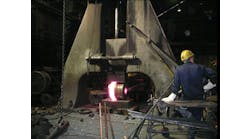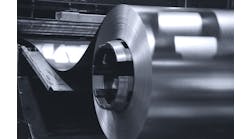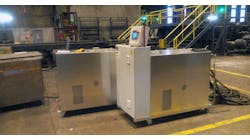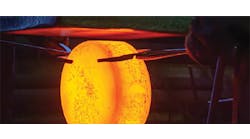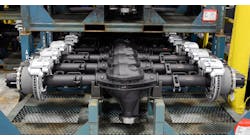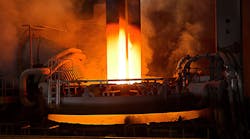Vulcan SFM, a business unit of Sheffield Forgemasters International Ltd. that specializes in producing high-integrity steel forgings and castings for offshore oil-and-gas exploration and production, reported it has contract to produce 10 riser basket components for a new, semi-submersible platform being developed in the Gulf of Mexico by Royal Dutch Shell, with the Norwegian state-controlled Statoil as its partner.
As reported, each of the components Vulcan SFM supplies will weigh approximately 11.5 metric tons. The U.K. open-die forger and ferrous foundry did not report the value of its contract. Production began in August at Sheffield’s steel foundry in Sheffield, England, and is expected to be completed by June 2018.
“The components we will supply are open cylinders with an internal profile which provides a bearing surface to directly support the riser,” according to Paul Mockford, design director at Vulcan SFM.
Shell’s Vito platform is planned as a 24,000-metric ton production unit that will sit at a depth of more than 4,000 feet. The well it attends may hold in excess of 300 million barrels of oil, according to estimates.
Fabrication of the platform has not yet been assigned, but Shell has started securing suppliers for crucial components, according to SFIL. The finished castings will be attached to the hull of the new platform, to support the risers that will come up from the sea-bed.
This is the second important assignment this year for Vulcan SFM concerning a new Gulf platform development. Previously, Samsung Heavy Industries ordered 73 castings ranging from 0.5 to 19.5 metric tons, for a semi-submersible oil platform to be installed in the Gulf of Mexico.
“These two contracts are the first signs of any return to offshore work after a complete cessation of new oil and gas developments on a worldwide basis, which came into effect when the price of oil plummeted in 2015,” according to Mockford. “We have been fortunate that our expertise in the field of supply to offshore projects, coupled with our long-term relationships with the major oil companies including Shell, helped us into a prime position to secure contracts on the first two projects commissioned requiring offshore platforms in more than two years.
“Although it is far too early to speculate that the offshore oil-and-gas market is making any kind of quantitative return, the commencement of operations in the Gulf of Mexico are very encouraging developments, as is the increase in oil prices as they approach $60 per barrel,” Mockford noted.

